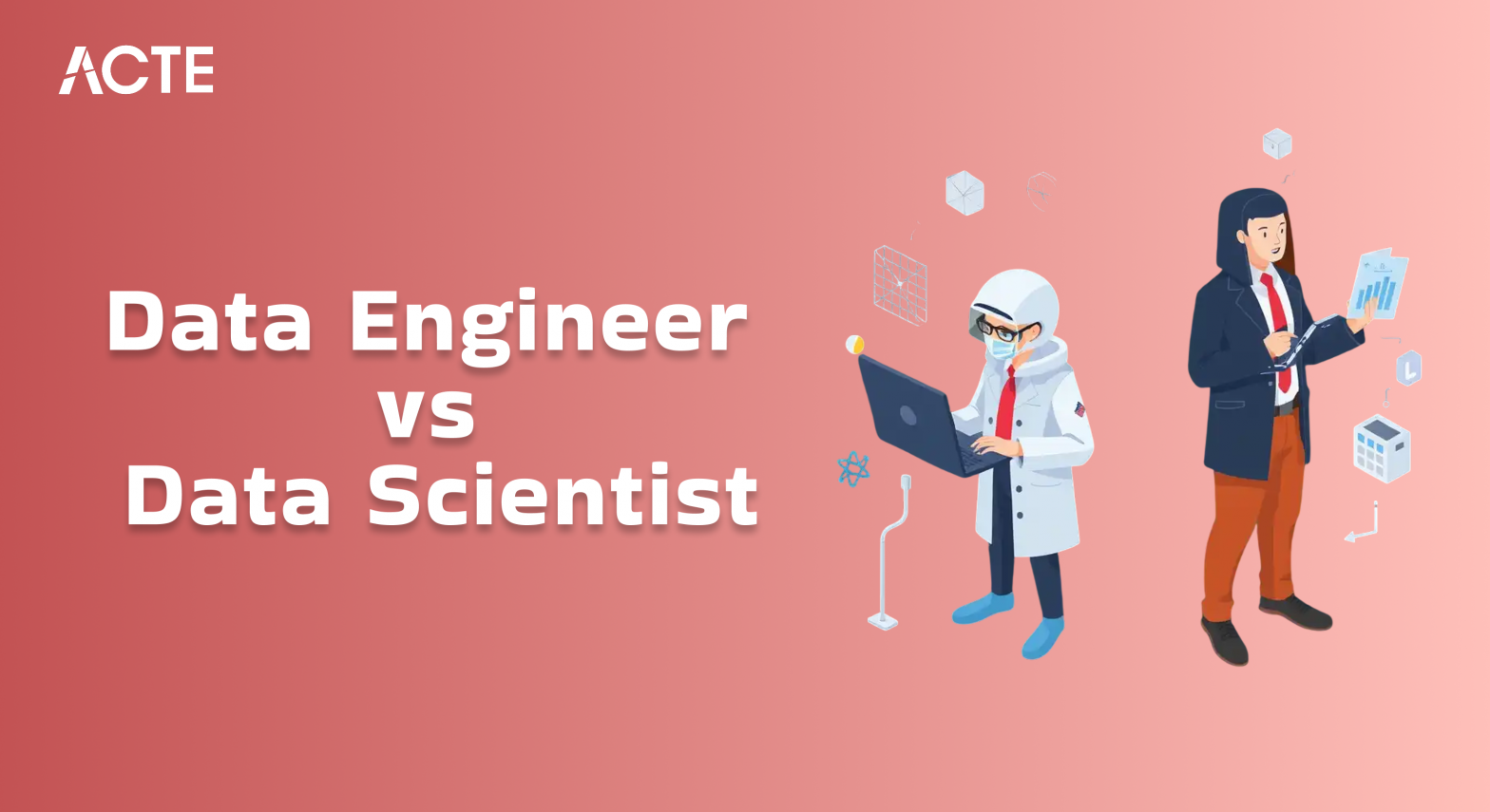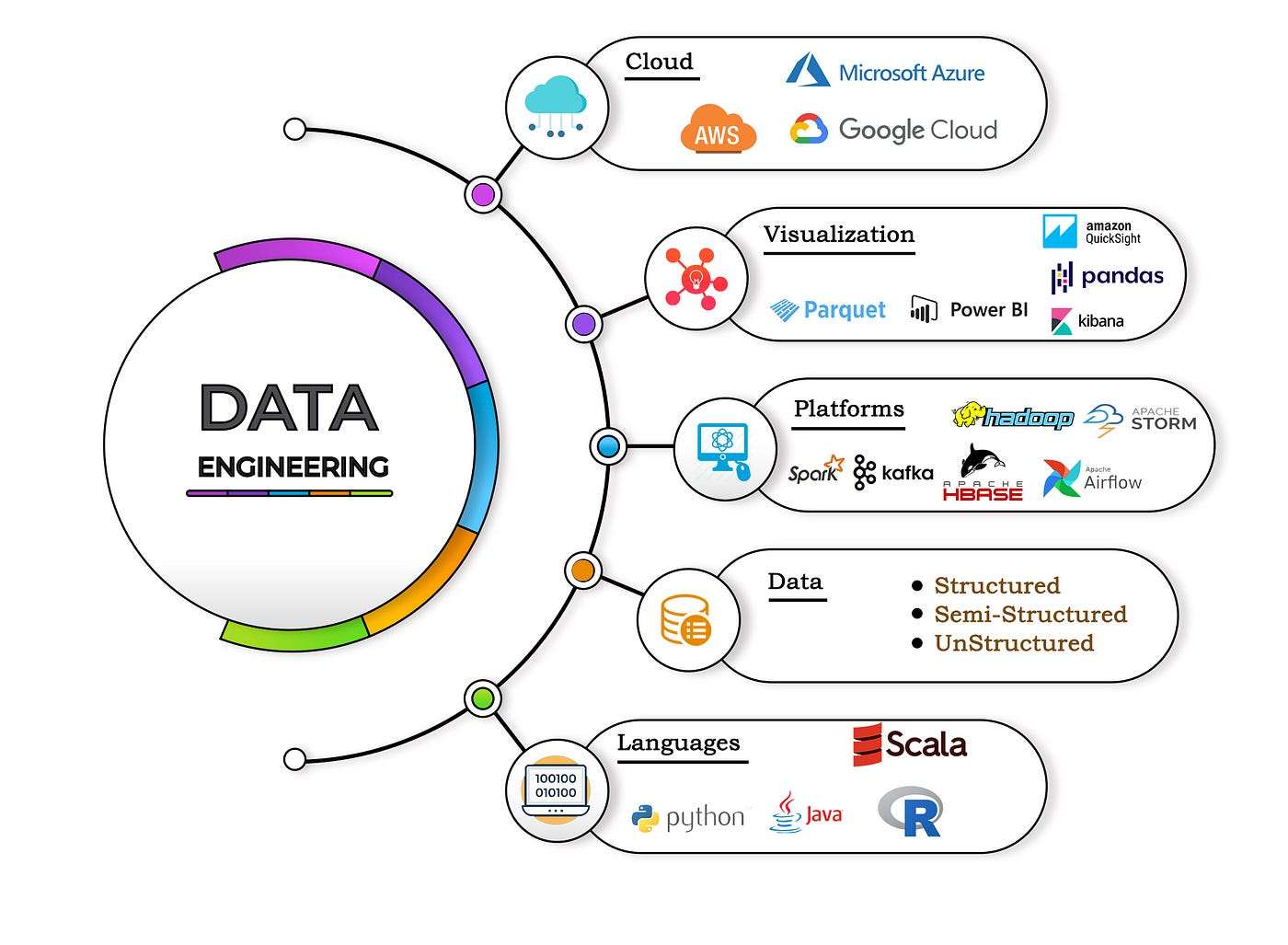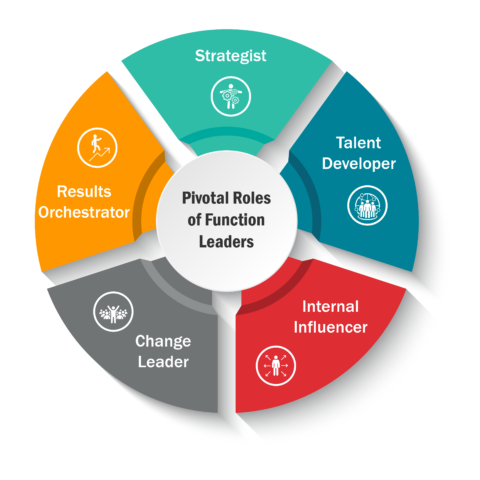
- Introduction to Data Engineering and Data Science
- Key Responsibilities of a Data Engineer
- Key Responsibilities of a Data Scientist
- Comparison of Skills Required for Each Role
- Tools and Technologies Used in Both Fields
- Data Engineering vs Data Science: Career Growth
- Salary Comparison: Data Engineer vs Data Scientist
- Work Environments and Job Expectations
- Which Role is More in Demand?
- Education and Certifications Needed for Each Career
- Transitioning from Data Engineer to Data Scientist
- Choosing the Right Career Path
Introduction to Data Engineering and Data Science
Data engineering and data science are two essential and interrelated disciplines within the broader fields of data analytics and artificial intelligence, each playing a distinct yet complementary role in leveraging data for organizational success. Data engineering primarily focuses on designing, developing, and maintaining robust data infrastructures and pipelines, enabling smooth data collection, transformation, storage, and accessibility across systems. This involves managing databases, implementing ETL processes, and ensuring scalability, security, and performance optimization within the data ecosystem. In contrast, data science often enhanced through Data Science Training emphasizes the analytical utilization of data through statistical analysis, machine learning, and predictive modeling to uncover meaningful patterns and generate insights that drive strategic decision-making and innovation. Data scientists depend on the solid groundwork laid by data engineers to access clean, reliable data for building models, conducting exploratory analysis, and producing actionable business intelligence. While data engineers build and maintain the technical backbone for data flow, data scientists interpret that data to support problem-solving, predict future trends, and improve operational efficiency. Effective collaboration between these roles is critical in modern data-driven enterprises, ensuring a seamless and impactful data lifecycle from ingestion to insight.
Would You Like to Know More About Data Science? Sign Up For Our Data Science Course Training Now!
Key Responsibilities of a Data Engineer
Data engineers are responsible for designing, constructing, and maintaining data pipelines and infrastructure. Their key responsibilities include:
- Data Pipeline Development: Building ETL (Extract, Transform, Load) processes to collect and move data from various sources into storage systems.
- Database Management: Designing and managing databases to store structured and unstructured data efficiently.
- Data Integration: Ensuring seamless data integration across multiple platforms and sources.
- Performance Optimization: Enhancing the efficiency of data storage, retrieval, and processing.
- Security and Compliance: Implementing security measures and ensuring compliance with regulations such as GDPR and HIPAA.
- Collaboration with Data Scientists: Providing clean, processed, and structured data for data scientists to analyze.

Key Responsibilities of a Data Scientist
Data scientists focus on deriving insights and predictions from data using statistical and machine learning techniques. Their responsibilities include:
- Data Analysis: Cleaning, exploring, and visualizing data to understand trends and patterns.
- Machine Learning Model Development: Building predictive and classification models using algorithms such as linear regression, decision trees, and neural networks.
- Feature Engineering: Selecting and transforming data features to improve model performance.
- Statistical Analysis: Applying statistical tests to validate hypotheses and measure the significance of insights.
- Data Storytelling: Presenting findings through visualizations and reports to aid decision-making.
- Collaboration with Engineers and Business Teams:Working closely with data engineers and stakeholders to ensure data alignment with business objectives.
Comparison of Skills Required for Each Role
While both data engineering and data science roles demand a solid foundation in programming, data manipulation, and an understanding of data structures, their technical skill sets diverge significantly based on their primary responsibilities and focus areas. Data engineering emphasizes building and optimizing data infrastructure, and as such, professionals in this field must be proficient in SQL for querying databases and managing relational data. They also need in-depth knowledge of big data frameworks such as Apache Spark and Hadoop, which are essential for handling large-scale data processing tasks efficiently. At the same time, understanding What is Data Science becomes important for grasping the contrasting skill set required for data analysis and model building. In addition to these, expertise in ETL (Extract, Transform, Load) tools is crucial, as data engineers are responsible for designing and implementing workflows that move data seamlessly from various sources into usable formats for analytics. Familiarity with cloud platforms like Amazon Web Services (AWS), Microsoft Azure, or Google Cloud Platform (GCP) is also critical, since many organizations rely on these services to host their data infrastructure and execute scalable, distributed computing operations.
On the other hand, data science is more focused on deriving insights and making predictions from data, which necessitates a different set of tools and techniques. Data scientists must be proficient in programming languages such as Python and R, both of which are widely used for statistical analysis, data wrangling, and building machine learning models. A strong foundation in statistics and probability is essential for interpreting data accurately and making sound inferences. They also use machine learning libraries and frameworks like TensorFlow, scikit-learn, and PyTorch to develop and train predictive models. Additionally, data scientists rely on data visualization tools such as Matplotlib, Seaborn, Tableau, or Power BI to communicate complex results in an intuitive and accessible manner to stakeholders. Overall, while there is some overlap in foundational skills, the technical proficiencies of data engineers and data scientists reflect the distinct goals of building data systems versus extracting value from data.
Tools and Technologies Used in Both Fields
- Data Engineering: SQL, Apache Kafka, Hadoop, Snowflake, AWS Redshift, Google BigQuery.
- Data Science: Python, R, Scikit-learn, TensorFlow, Power BI, Tableau.
- Common Tools: SQL, Pandas, Jupyter Notebooks, Git, and cloud computing platforms.
Data Engineering vs Data Science: Career Growth
Career growth in both data engineering and data science is highly promising, offering clear pathways to senior and leadership roles as professionals gain experience and refine their skills. Data engineers typically begin in technical roles focused on building and managing data infrastructure, but with experience, they can progress to positions such as Lead Data Engineer, where they oversee data pipeline development and mentor junior team members. From there, they may advance to become Data Architects, responsible for designing complex, scalable data systems, and eventually reach executive roles like Chief Data Officer (CDO). At this stage, it’s useful to understand how roles differ across domains, which is where comparisons like Data Science vs Computer Science can offer helpful insights. Similarly, data scientists start by analyzing data, building models, and deriving insights to support business decisions. As they develop their expertise, they can move into roles like Lead Data Scientist, taking charge of analytics initiatives and strategic projects, and then advance to specialized positions such as AI Specialist, focusing on machine learning and intelligent systems. With significant experience and leadership capabilities, they may become Chief Data Scientists, leading the organization’s data science vision and fostering innovation through data-driven strategies. In both fields, continuous upskilling and staying abreast of emerging technologies are crucial for advancing to these high-impact roles.
Want to Pursue a Data Science Master’s Degree? Enroll For Data Science Masters Course Today!
Salary Comparison: Data Engineer vs Data Scientist
Salaries vary based on location, experience, and industry. In general:
- Data Engineers: Earn an average salary ranging from $90,000 to $150,000 annually.
- Data Scientists: Earn between $100,000 and $160,000 per year.
While data scientists often have higher salaries, data engineers are also in high demand, with competitive pay structures.
Work Environments and Job Expectations
Both data engineers and data scientists work across a range of industries, including tech companies, finance, healthcare, and e-commerce, where their expertise in managing and analyzing data is crucial to driving innovation and operational efficiency. However, their specific roles and areas of focus differ significantly within these sectors. Data engineers primarily focus on backend data infrastructure, ensuring that large volumes of data are efficiently collected, processed, and stored. Their work often revolves around designing and optimizing data pipelines, managing databases, implementing ETL (Extract, Transform, Load) processes, and ensuring data is clean, accessible, and scalable for downstream use. Data engineers also work with cloud technologies, big data frameworks, and data storage solutions to support the seamless flow of data across an organization’s ecosystem. In contrast, data scientists concentrate more on the analytical side of data utilization. They are responsible for creating and applying statistical models, machine learning algorithms, and advanced analytics to extract meaningful insights from the data. Many enhance their skills through programs like Data Science Training which prepare them to work closely with business teams to understand organizational challenges and use data to model solutions, predict trends, and identify opportunities for improvement. Their ability to communicate complex findings in a clear and actionable way is essential, as they often bridge the gap between technical data and business strategies. While data engineers build the foundation that allows data to be effectively utilized, data scientists interpret and leverage that data to solve real-world problems and drive informed decision-making within the organization.

Which Role is More in Demand?
At present, data engineering is experiencing higher demand compared to data science, primarily due to the growing need for scalable and efficient data infrastructure in organizations. As companies accumulate more data, the importance of having well-structured and robust data pipelines becomes crucial to support the expanding scope of data-driven initiatives. Data engineers play a key role in designing, building, and maintaining these complex systems, ensuring that data flows seamlessly across platforms, is organized effectively, and is available for downstream analytical purposes. Their expertise in managing databases, constructing ETL (Extract, Transform, Load) processes, and working with cloud technologies allows them to create the foundation needed for data science projects. Without a solid data infrastructure in place, data scientists would struggle to access clean, reliable, and timely data necessary for their predictive models, analyses, and decision-making. For professionals evaluating the broader career landscape, reviewing Data Analyst salary insights can provide helpful context on compensation trends across roles in the data domain. As organizations continue to rely on big data for insights, machine learning, and artificial intelligence, the demand for skilled data engineers who can design scalable, secure, and efficient systems to handle large volumes of data has significantly increased. The focus on building and optimizing data pipelines is now seen as a priority, with companies looking to create systems that can handle not only current data requirements but also future growth, ensuring that the infrastructure is future-proof and adaptable to the ever-evolving data landscape. This surge in demand for data engineering professionals highlights the critical role these specialists play in enabling successful data science and AI-driven innovations.
Education and Certifications Needed for Each Career
Data engineers typically come from backgrounds in computer science or software engineering, with a strong focus on building and managing the technical infrastructure necessary for large-scale data systems. Their education often includes a degree in computer science or software engineering, providing them with the foundational knowledge in algorithms, programming, and system design required for their role. Additionally, certifications in cloud platforms such as AWS (Amazon Web Services) or Google Cloud are highly valued, as they demonstrate expertise in managing cloud-based infrastructures, which are crucial for building scalable data pipelines and systems. Data engineers also gain proficiency in tools and frameworks related to big data processing, databases, and data warehousing, which allows them to ensure that data is accessible and reliable for analytics. On the other hand, data scientists typically hold degrees in statistics, mathematics, or related fields, as these disciplines provide the rigorous quantitative and analytical skills needed to interpret and model data. A solid understanding of statistical methods, probability theory, and advanced mathematics is essential for building predictive models, conducting hypothesis testing, and performing data analysis. In addition to their formal education, many data scientists pursue specialized certifications in machine learning or data science from platforms like Coursera, Udacity, or edX. These certifications help enhance their expertise in machine learning algorithms, deep learning, and data visualization, equipping them with the practical skills needed to analyze data and extract valuable insights for business decision-making. Thus, while data engineers focus on building data systems, data scientists apply their academic knowledge and specialized training to turn data into actionable business intelligence.
Transitioning from Data Engineer to Data Scientist
Many professionals make a transition from data engineering to data science by acquiring additional knowledge and skills in areas such as machine learning, statistics, and artificial intelligence. While data engineers focus on building and maintaining data infrastructures, they often develop an interest in the analytical side of data, which leads them to explore data science. At this stage, understanding the distinctions between related fields such as Data Mining vs Data Science can provide valuable clarity on where to focus skill development. To facilitate this shift, they typically pursue further education or certifications in machine learning techniques, statistical methods, and AI concepts. Gaining proficiency in programming languages like Python and R, as well as becoming familiar with machine learning frameworks such as TensorFlow, PyTorch, or scikit-learn, is essential for this transition. Additionally, a solid understanding of statistical analysis and data modeling is crucial for interpreting data, building predictive models, and applying AI-driven solutions to real-world problems. As data engineers already possess strong technical skills in handling data systems, their experience in managing large datasets and working with cloud platforms can be a valuable foundation as they expand their skill set to include the analytical expertise required for data science. This blend of data engineering and data science knowledge enables professionals to successfully navigate the shift and contribute to both the infrastructure and analytical aspects of data-driven projects within organizations.
Choosing the Right Career Path
The decision between pursuing a career in data engineering or data science largely depends on personal interests and strengths. If you find enjoyment in software development, building robust systems, and working on data infrastructure, data engineering would be the ideal path. Data engineers focus on constructing scalable data pipelines, optimizing data storage solutions, and ensuring that data flows efficiently within an organization’s ecosystem. This role appeals to those who enjoy technical problem-solving, programming, and working with cloud platforms and big data tools. On the other hand, if you have a passion for analytics, statistics, and creating predictive models to derive insights from data, data science may be a better fit for you especially when supported by resources such as Data Science Training Data scientists engage in statistical analysis, machine learning, and modeling to uncover trends, solve complex business problems, and guide data-driven decision-making. This role is well suited for individuals who thrive in environments that require a deep understanding of algorithms and data interpretation. Both fields offer excellent career opportunities with strong job demand and competitive salaries. Additionally, professionals who possess expertise in both data engineering and data science are highly valued in the industry, as they are able to bridge the gap between the infrastructure needed for data management and the analytical capabilities required to derive insights, making them indispensable assets to organizations working with large-scale data.




